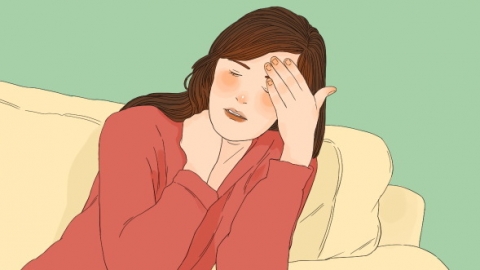What's causing the distress and restlessness?
Generally, feelings of distress and restlessness may be caused by excessive nervous system excitation, accumulated psychological stress, neurasthenia, anxiety disorder, hyperthyroidism, or other conditions. It is recommended to seek medical attention promptly, identify the underlying cause, and receive symptomatic treatment under a doctor's guidance. Specific analyses are as follows:

1. Excessive Nervous Excitation: Excessive caffeine intake or lack of sleep can keep the brain's nerves continuously active, leading to irritability and an inability to sit still. Avoid consuming stimulants such as coffee and strong tea, rest with eyes closed in a quiet environment, and use meditation to calm nervous excitement.
2. Accumulated Psychological Stress: Prolonged complex tasks without proper organization lead to built-up stress in the body, manifesting as restlessness and emotional agitation. List pending tasks and prioritize them, and set aside 20 minutes daily for stretching exercises to relieve psychological pressure.
3. Neurasthenia: Long-term mental tension causes the nervous system to become easily fatigued and overly excitable, resulting in distress and difficulty concentrating. Patients may take medications such as oryzanol tablets, vitamin B1 tablets, and diazepam tablets as prescribed, along with maintaining regular sleep patterns and avoiding staying up late.
4. Anxiety Disorder: Characterized by persistent anxiety, accompanied by symptoms such as restlessness and palpitations, affecting daily activities. Medications such as paroxetine hydrochloride tablets, tandospirone citrate capsules, and lorazepam tablets should be taken as directed by a physician, combined with cognitive behavioral therapy.
5. Hyperthyroidism: Excessive secretion of thyroid hormones accelerates metabolism and increases sympathetic nervous system activity, causing irritability and restlessness. Medications such as methimazole tablets, propylthiouracil tablets, and metoprolol tartrate tablets may be used under medical supervision to regulate hormone levels.
In daily life, maintain a light and balanced diet, avoiding spicy and stimulating foods. Cultivate calming hobbies such as gardening or fishing, and when facing stressful situations, slow down your breathing rhythm—inhale for 4 seconds, hold for 2 seconds, and exhale for 6 seconds—to stabilize emotions.







